

Matt Campbell
2025 Porsche 911 Carrera T review
6 Days Ago

Journalist
Ford of Europe says it will launch seven new electric vehicles by 2024, although this number is inflated by counting two vans as separate models from their people mover siblings.
It’s also counting a coupe crossover variant as distinct from its more practical counterpart.
Later this year Ford will launch its first vehicle based on the Volkswagen Group’s MEB all-electric architecture. Said to be a “mid-size crossover”, the new vehicle is thought to be closely related to the Volkswagen ID.4 and will sit below the Mustang Mach-E.
According to the firm, the EV crossover will be capable of driving up to 500km on a single charge. Media reports indicate the automaker will bring back one of its classic European nameplates for the vehicle.
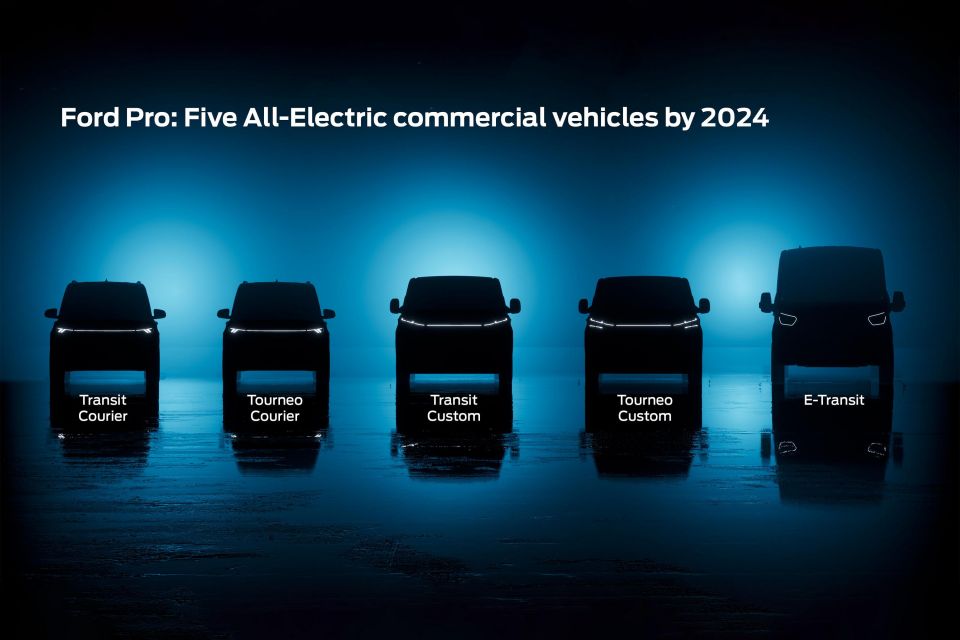
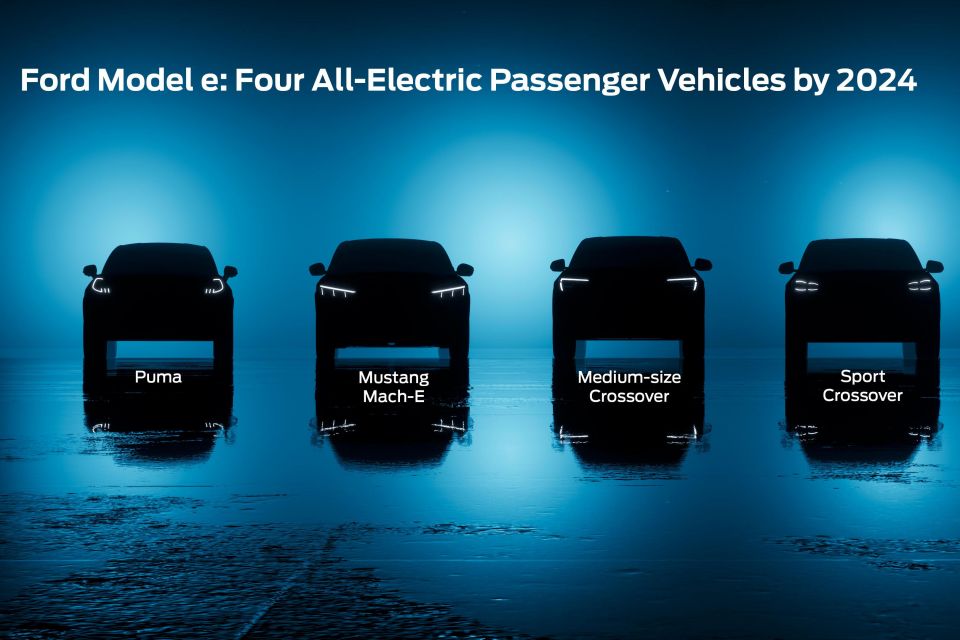
The as-yet unnamed vehicle will go into production from 2023 at the company’s heavily renovated factory in Cologne, Germany.
Despite sharing common underpinnings with various Volkswagen Group vehicles, Ford is promising the new crossover will be a distinctly Ford vehicle in terms of design, feel and services.
It will be joined within a year by a “sports crossover” to be built at the same plant, and presumably using the same platform.
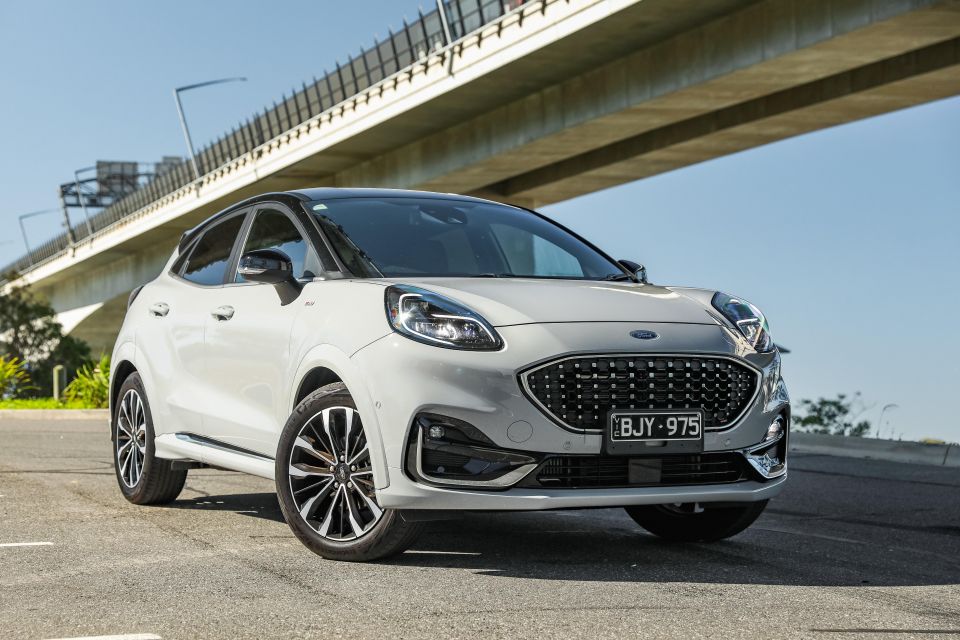
In 2024 the company’s passenger EV lineup will be bolstered by an electric version of the Puma. The Puma EV will be built alongside petrol and diesel versions of the popular light crossover in Craiova, Poland.
It’s expected the introduction of the Puma EV will mean the end of European production of the unloved EcoSport.
Over on the commercial vehicle front, the all-electric versions of the Transit Custom one-tonne van, as well as its Tourneo Custom people mover variant, will go into production in 2023.
This will be followed by EV variants of the next-generation Fiesta-sized Transit Courier van and Tourneo Courier people mover.
The E-Transit van has already been unveiled, and will go on sale in Europe from the second quarter of 2022, with Australian sales to begin around the middle of the year.
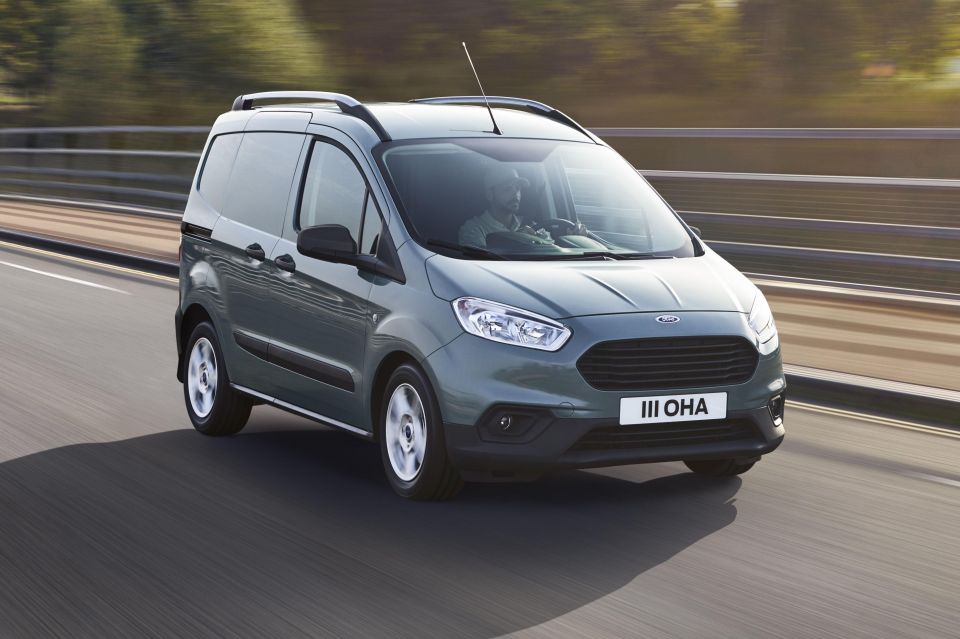
With these new vehicles, Ford is planning to sell over 600,000 EVs in Europe by 2026. The company also expects its Cologne plant to churn out 1.2 million EVs by 2029.
To help the company meet its EV targets, the automaker is setting up a battery factory in Turkey with Korean battery firm SK On and Turkish conglomerate Koç Holding.
In the middle of 2021, the European Commission said it plans to ban the sale of new cars with internal combustion engines by 2035. This will force all automakers operating in the region to shift to EV-only lineups.
Where expert car reviews meet expert car buying – CarExpert gives you trusted advice, personalised service and real savings on your next new car.
Derek Fung would love to tell you about his multiple degrees, but he's too busy writing up some news right now. In his spare time Derek loves chasing automotive rabbits down the hole. Based in New York, New York, Derek loves to travel and is very much a window not an aisle person.


Matt Campbell
6 Days Ago


James Wong
5 Days Ago


Max Davies
4 Days Ago
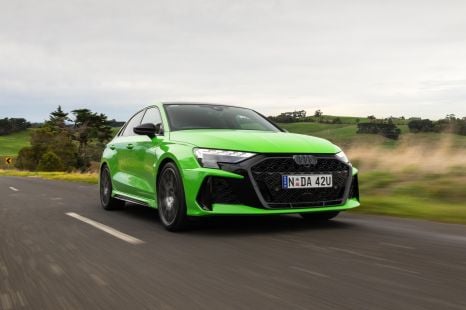

Josh Nevett
3 Days Ago
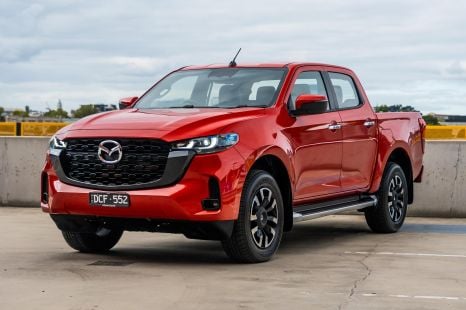

Josh Nevett
2 Days Ago
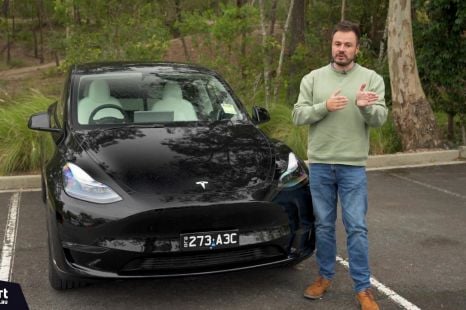

Paul Maric
23 Hours Ago